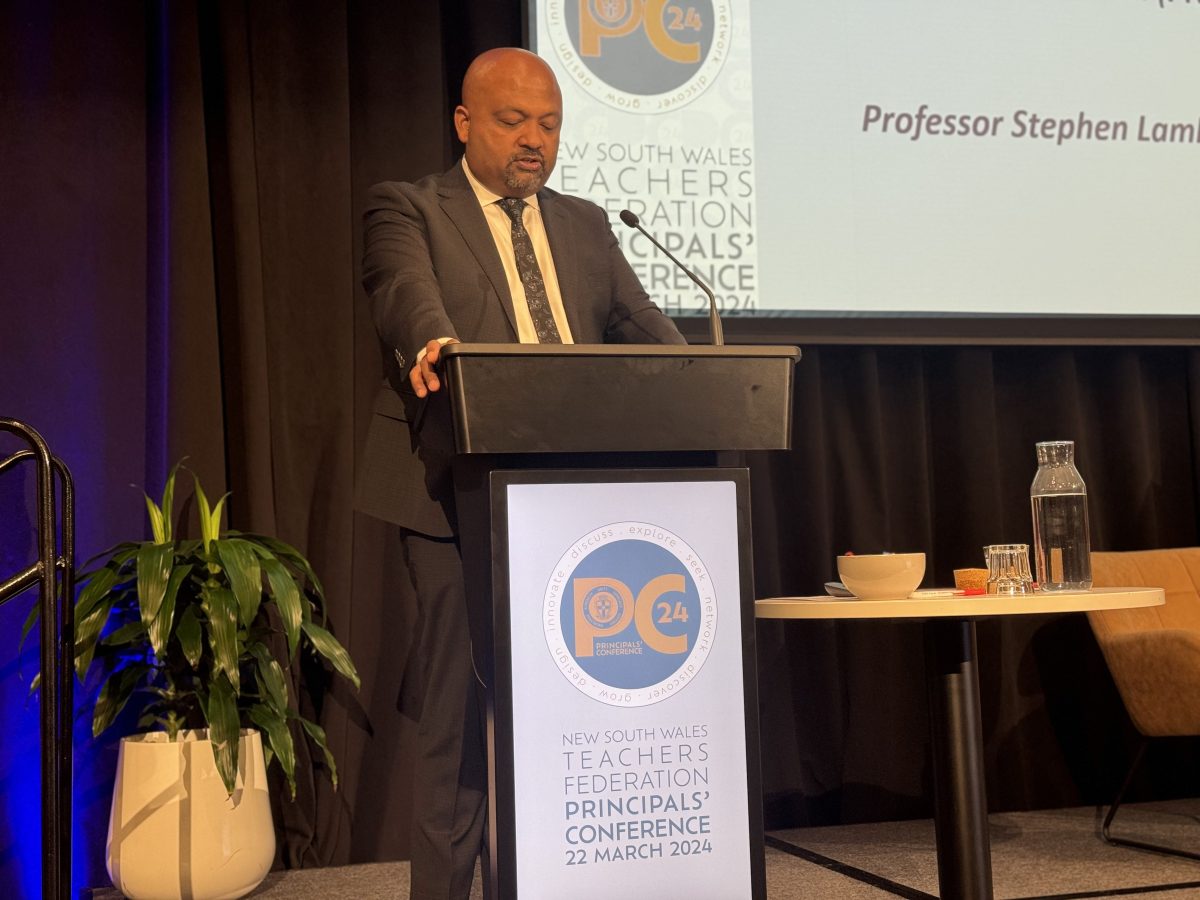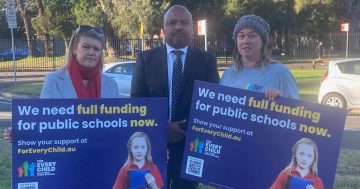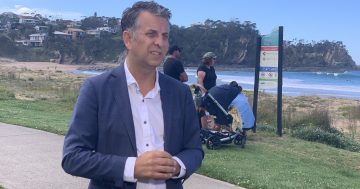
NSW Teachers Federation president Henry Rajendra: “The NSW Public School System does not have enough funding resources or staffing to meet the needs of all students.” Photo: Henry Rajendra.
Record levels of violence, anxiety and depression, along with an unmanageable workload, have more than half of Australian principals thinking about quitting their jobs, according to a recent survey by the Australian Catholic University.
The survey, which has been conducted since 2011, takes a snapshot from about 2500 school leaders across the nation.
Survey participants have diverse levels of experience, from less than five years in the job to more than two decades.
NSW Teachers Federation president Henry Rajendra said he wasn’t surprised by the results.
“As disturbing as these findings are, regrettably, they do not come as a surprise,” he said.
“Principals have increasingly been put under incredible pressure due to the lack of systemic support, courtesy of failed deregulatory policies of the previous NSW Liberal/National government.
“Not only are principals left to fend for themselves in such a deregulated environment, the NSW Public School System does not have enough funding resources or staffing to meet the needs of all students.”
Principals in the ACT triggered the most alerts with 58.5 per cent of school leaders identified to be at risk of serious mental health concerns, ahead of the Northern Territory (57.4%), NSW (55.7%) and Western Australia (52.2).
The marked jump in threats, physical violence and cyberbullying against principals saw ACT principals report the highest rate of physical violence and/or threats from students at 80.5 per cent, followed by NT (75.5%), WA (57.2%), Tasmania (55.9%) Queensland (51.7%), NSW (46.6%), SA (43.3%) and Victoria (32.8%).
The majority of principals who experienced violence or threats said they came from students; however, many also experienced violence or threats from parents.
Principals in the ACT were more likely than other states and territories to report being victims of threats or physical violence.
ACT Principals Association President Simon Vaughn said the government had to act to protect educators in the workplace.
“People have a perception about Canberra and the ‘Canberra bubble’ and forget there is a diverse community here,” he said.
“Rates of physical violence against principals in the ACT are quite high, and that’s of significant concern to me.
“It’s very rare in a lot of people’s daily jobs, outside the emergency services, for two-thirds of the people they contact to threaten them with violence.
“Something must be stood up at national levels to address these things.
“In Victoria, if someone at school is threatening to assault or actually assaults you, you’re entitled to some legal protection the same way you would be in the community.”
Despite the rates of violence, what has most principals thinking about leaving their jobs is an unmanageable workload.
Mr Rajendra and Mr Vaughn agreed that an unrealistic workload and lack of support meant principals struggled to keep their heads above water.
“Every day I put on my boots, I come to work, and I’m happy to be here, but I go home exhausted,” Mr Vaughn said.
“You need time with your family and hobbies to sustain you, but there is an overwhelming feeling of this massive body of work that needs to be done and the feeling you can’t get away from it.
“There is a tendency for principals to feel like there’s a heavy responsibility to get this done for the sake of the school community, and so it impinges on the rest of their life.”
Two bright spots in the data were a slight increase in job satisfaction and self-rated resilience.
Researchers said principals who rated themselves as being more resilient were less likely to think about quitting.
Mr Vaughn explained it was important to lean into the positive aspects of the report.
“We’re still hanging in after a decade of this data, and that’s a good thing because if we weren’t, the school system would be in disarray,” he said.
“The fact we keep bouncing back for our communities is worth celebrating because what’s the alternative?
“People look at you, shake their heads, and say, ‘I could never do that job,’ but there is great joy in our work and in what we can do for our young people.”
Mr Rajendra and Mr Vaughn called on state, territory and federal governments to make the changes necessary to support principals and teachers.
“It’s long overdue for governments to step up and provide the necessary funding and systemic support for our schools,” Mr Rajendra said.
















